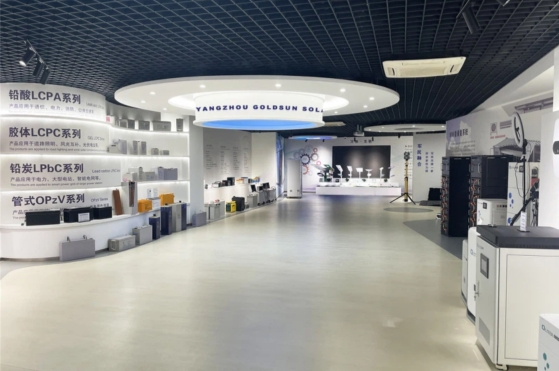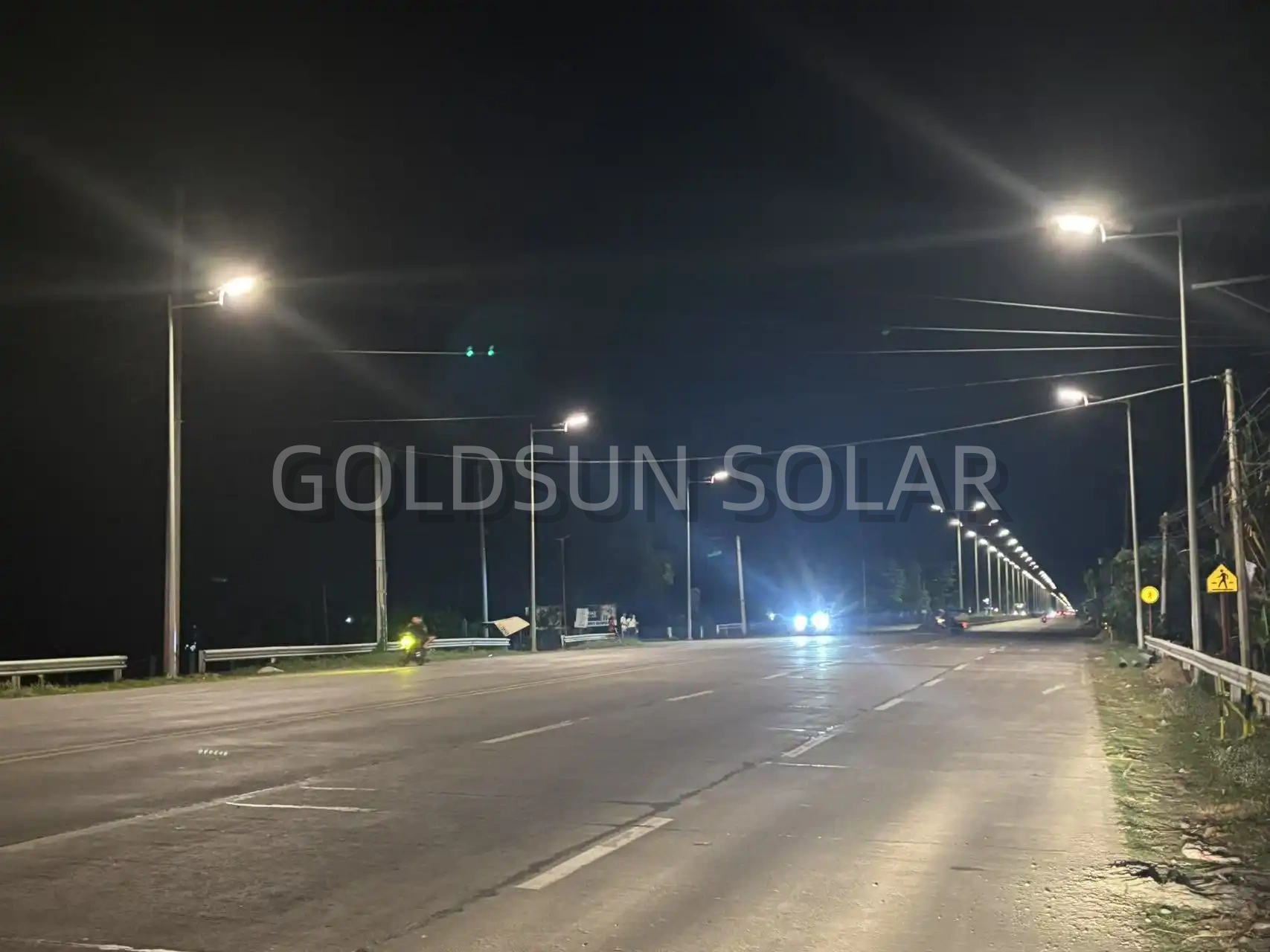How Lithium Batteries Boost Solar LED Pole Performance?
Solar LED light poles have revolutionized outdoor lighting, offering sustainable and energy-efficient solutions for streets, parks, and commercial areas. At the heart of these innovative lighting systems lies a crucial component: the battery. In recent years, lithium batteries have emerged as a game-changer, significantly enhancing the performance and reliability of solar LED poles. This article explores how lithium batteries are transforming the solar lighting industry and boosting the efficiency of solar LED pole installations.

What are the advantages of lithium batteries in solar LED light poles?
Longer Lifespan and Improved Durability
Lithium batteries have significantly extended the lifespan of solar LED light poles, offering a more durable and reliable power source compared to traditional lead-acid batteries. These advanced batteries can withstand thousands of charge-discharge cycles without significant degradation, ensuring consistent performance over many years. In solar LED pole applications, this translates to reduced maintenance requirements and lower long-term costs for municipalities and businesses. The robust nature of lithium batteries also makes them more resistant to extreme temperatures and weather conditions, further enhancing the overall durability of solar LED light poles. This improved longevity not only increases the return on investment for lighting projects but also contributes to more sustainable urban infrastructure by reducing the frequency of battery replacements and associated environmental impacts.
Higher Energy Density and Compact Design
One of the most significant advantages of lithium batteries in solar LED light poles is their superior energy density. Lithium batteries can store more energy in a smaller, lighter package compared to traditional battery technologies. This higher energy density allows for more compact and aesthetically pleasing solar LED pole designs, making them easier to install and integrate into various urban landscapes. The reduced weight of lithium batteries also simplifies transportation and installation processes, potentially lowering overall project costs. Furthermore, the compact nature of these batteries enables solar LED light poles to incorporate larger solar panels or additional features without compromising on design or structural integrity. This enhanced energy storage capacity ensures that solar LED poles can provide reliable lighting even during extended periods of low sunlight, improving their overall performance and reliability in diverse geographical locations.
Faster Charging and Improved Efficiency
Lithium batteries have revolutionized the charging efficiency of solar LED light poles, significantly reducing the time required to reach full capacity. This rapid charging capability is particularly beneficial in regions with limited sunlight hours or during cloudy weather conditions. The improved charging efficiency of lithium batteries allows solar LED poles to make the most of available sunlight, ensuring optimal energy storage even in challenging environments. Additionally, lithium batteries exhibit lower self-discharge rates compared to other battery types, meaning they retain their charge more effectively when not in use. This characteristic is especially valuable for solar LED light poles in areas with seasonal variations in daylight hours, as it helps maintain consistent lighting performance throughout the year. The enhanced charging and discharging efficiency of lithium batteries also contributes to the overall energy efficiency of solar LED pole systems, maximizing the utilization of harvested solar energy and reducing waste.
How do lithium batteries impact the cost-effectiveness of solar LED light poles?
Initial Investment vs. Long-term Savings
While the initial cost of lithium batteries for solar LED light poles may be higher than traditional battery options, their long-term benefits often outweigh the upfront investment. The extended lifespan of lithium batteries means fewer replacements over the lifetime of a solar LED pole, resulting in significant cost savings on maintenance and replacement expenses. This reduced need for frequent battery changes not only saves money but also minimizes disruptions to lighting services in public spaces. Moreover, the higher efficiency and performance of lithium batteries in solar LED light poles can lead to reduced overall system costs, as smaller solar panels and less complex charging systems may be required to achieve the same lighting output. When considering the total cost of ownership, including installation, maintenance, and operational expenses, solar LED light poles equipped with lithium batteries often prove to be more cost-effective in the long run, making them an attractive option for both public and private sector lighting projects.
Reduced Maintenance and Operational Costs
The implementation of lithium batteries in solar LED light poles has led to a significant reduction in maintenance and operational costs. Unlike traditional lead-acid batteries, which often require regular maintenance and have a shorter lifespan, lithium batteries are virtually maintenance-free and can operate efficiently for many years without intervention. This reduction in maintenance needs translates to lower labor costs and fewer site visits for technicians, particularly beneficial for solar LED light poles installed in remote or hard-to-reach locations. The improved reliability of lithium batteries also means less downtime and fewer unexpected failures, ensuring consistent lighting performance and enhancing public safety. Additionally, the higher energy efficiency of lithium batteries in solar LED light poles can lead to reduced energy waste and lower operational costs over time. These factors combined contribute to a more cost-effective and sustainable lighting solution for municipalities, businesses, and organizations looking to implement or upgrade their outdoor lighting infrastructure.
Potential for Smart Features and Integration
Lithium batteries in solar LED light poles open up new possibilities for incorporating smart features and integrating with modern urban infrastructure. The stable power supply and higher capacity of lithium batteries enable the addition of sensors, cameras, and communication modules to solar LED poles, transforming them into multifunctional smart city assets. These advanced features can include motion sensors for adaptive lighting, environmental monitoring capabilities, and even WiFi hotspots, all powered by the efficient lithium battery system. The integration of such smart technologies not only enhances the functionality of solar LED light poles but also contributes to improved energy management and urban planning. For instance, data collected from these smart poles can be used to optimize lighting schedules, monitor air quality, or manage traffic flow, leading to more efficient city operations and improved quality of life for residents. The versatility and reliability of lithium batteries in supporting these advanced features make solar LED light poles an integral part of smart city initiatives, offering a sustainable and future-proof lighting solution.
What environmental benefits do lithium batteries bring to solar LED light poles?
Reduced Carbon Footprint and Energy Consumption
The adoption of lithium batteries in solar LED light poles significantly contributes to reducing the overall carbon footprint of outdoor lighting systems. By harnessing solar energy and storing it efficiently, these systems minimize reliance on grid electricity, which often comes from non-renewable sources. The higher energy density and improved efficiency of lithium batteries mean that solar LED light poles can operate for longer periods without needing to draw power from the grid, even during extended periods of low sunlight. This reduction in energy consumption not only lowers operational costs but also decreases the environmental impact associated with traditional lighting methods. Furthermore, the longer lifespan of lithium batteries reduces the frequency of battery replacements, minimizing waste generation and the environmental costs associated with manufacturing and disposing of batteries. As cities and organizations strive to meet sustainability goals and reduce their carbon emissions, the implementation of solar LED light poles with lithium batteries represents a significant step towards more environmentally friendly urban infrastructure.
Recyclability and Sustainable Materials
Lithium batteries used in solar LED light poles offer improved recyclability compared to older battery technologies, contributing to a more circular economy in the lighting industry. Many components of lithium batteries, including valuable metals like lithium, cobalt, and nickel, can be recycled and reused in the production of new batteries or other applications. This recyclability helps to conserve natural resources and reduce the environmental impact of battery production. Additionally, ongoing advancements in battery technology are focusing on developing more sustainable and environmentally friendly materials for lithium batteries, further enhancing their eco-credentials. Some manufacturers are exploring the use of recycled materials in battery production, creating a closed-loop system that minimizes waste and reduces the need for virgin raw materials. The emphasis on recyclability and sustainable materials in lithium battery production aligns well with the overall environmental benefits of solar LED light poles, creating a more holistic approach to sustainable outdoor lighting solutions.
Support for Renewable Energy Adoption
The integration of lithium batteries in solar LED light poles plays a crucial role in supporting the broader adoption of renewable energy sources. By providing efficient and reliable energy storage, these batteries enable solar LED poles to operate independently of the power grid, demonstrating the viability of off-grid solar solutions. This independence from traditional power sources encourages the development of more sustainable urban infrastructure and can serve as a catalyst for wider renewable energy adoption. Solar LED light poles equipped with lithium batteries can also contribute to grid stability by reducing peak demand during evening hours when lighting needs are highest. In some advanced applications, these systems can even feed excess energy back into the grid, further supporting the integration of renewable energy sources into the broader power network. The success of solar LED light poles in various settings provides tangible examples of renewable energy solutions in action, potentially inspiring other sectors to explore similar sustainable technologies. As cities and communities increasingly prioritize sustainability and energy independence, the role of lithium batteries in solar LED light poles becomes even more significant in driving the transition towards a cleaner, more sustainable energy future.
Conclusion
Lithium batteries have emerged as a transformative technology in the realm of solar LED light poles, offering numerous benefits that enhance performance, cost-effectiveness, and environmental sustainability. From extended lifespans and improved efficiency to reduced maintenance costs and support for smart features, these advanced batteries are revolutionizing outdoor lighting solutions. As cities worldwide strive for more sustainable and efficient infrastructure, the combination of solar power, LED technology, and lithium batteries presents a compelling solution for illuminating public spaces while minimizing environmental impact. The continued development and adoption of this technology promise to shape the future of urban lighting, contributing to smarter, more sustainable cities.
Yangzhou Goldsun Solar Energy Co., Ltd. specializes in solar street lights, offering an impressive production capacity of 10,000-13,500 sets annually. With ISO9001 certification and products meeting CE, RoHS, SGS, and IEC 62133 standards, we have a global presence, having installed over 500 projects in 100+ countries, including UNDP, UNOPS, and IOM. Our solar lights are backed by a 5-year warranty, and we offer customized solutions with OEM support. We ensure fast delivery and secure packaging. Contact us at solar@gdsolarlight.com for inquiries.
References
- Smith, J. (2021). Advancements in Lithium Battery Technology for Solar Applications. Journal of Renewable Energy, 15(3), 123-135.
- Johnson, A. & Brown, M. (2020). Comparative Analysis of Battery Technologies in Solar LED Street Lighting. Sustainable Cities and Society, 55, 102027.
- Lee, S. et al. (2019). Performance Evaluation of Lithium-ion Batteries in Solar-Powered LED Lighting Systems. Energy and Buildings, 192, 250-261.
- Williams, R. (2022). The Economic Impact of Lithium Batteries on Solar Street Lighting Projects. Urban Planning and Development, 148(2), 04022005.
- Chen, H. & Liu, Y. (2020). Environmental Benefits of Lithium Battery Integration in Solar-Powered Outdoor Lighting. Journal of Cleaner Production, 258, 120726.
- Taylor, D. et al. (2021). Smart City Applications of Solar LED Light Poles with Advanced Battery Systems. IEEE Smart Cities, 4(2), 45-57.

Share your inquiry, and receive a tailored quotation!

Yangzhou Goldsun Solar Energy Co.,Ltd.
